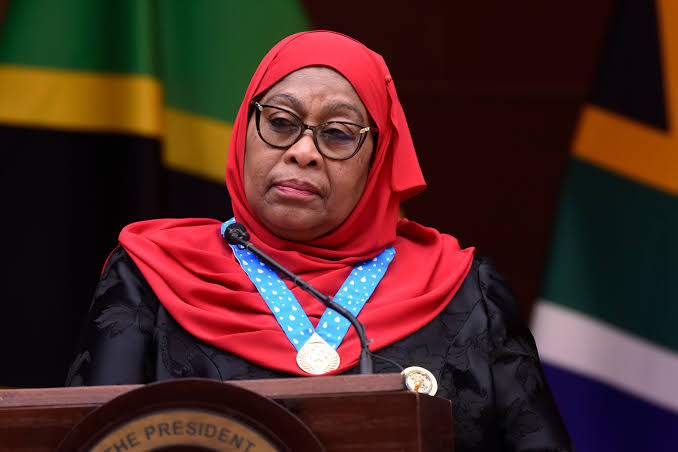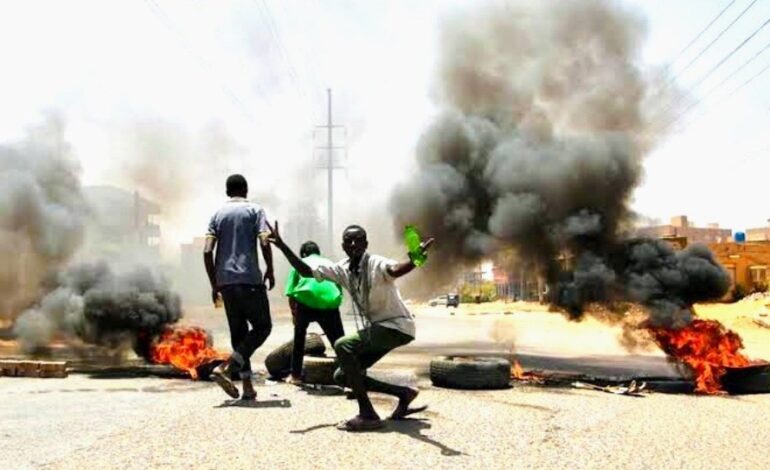
Faith Nyasuguta
Sudanese nationals and foreigners streamed out of the capital of Khartoum and other battle zones, as fighting Tuesday shook a new three-day truce brokered by the United States and Saudi Arabia.
Millions of Sudanese trapped in their homes since violence began April 15, between forces loyal to the country’s top two generals.
Civilian life has come to a standstill as tens of thousands of heavily armed fighters from the military and its rival, the Rapid Support Forces, battle it out in densely populated residential areas.
Footage captured by The Associated Press in Khartoum showed empty streets, and smoke rising on the horizon of the city.
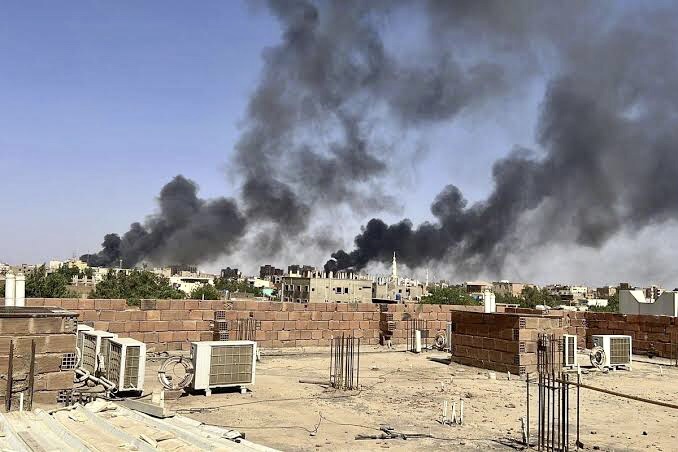
Over 420 people, including at least 273 civilians, have been killed and over 3,700 wounded since the fighting began.
The military has appeared to have the upper hand in fighting in Khartoum but the RSF still controls many districts in the capital and the neighboring city of Omdurman, and has several large strongholds around the country.
A series of short cease-fires the past week have either failed outright or brought only intermittent lulls in the fighting that has raged between forces loyal to the country’s two top generals since April 15.
The lulls have been enough for dramatic evacuations of hundreds of foreigners by air and land, which continued Tuesday.
But they have brought no relief to millions of Sudanese caught in the crossfire, struggling to find food, shelter and medical care as explosions, gunfire and looters wreck their neighbourhoods.
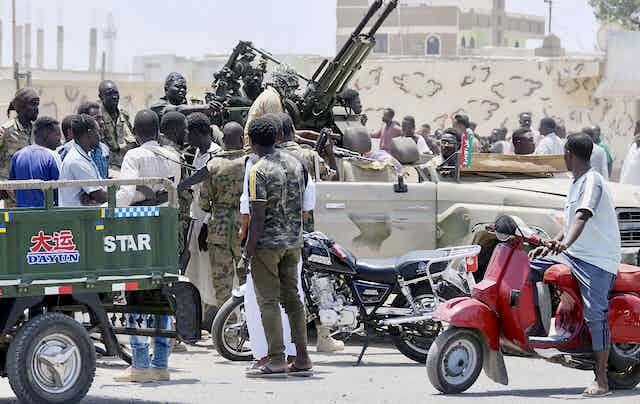
In a country where a third of the population of 46 million already needed humanitarian assistance, multiple aid agencies have had to suspend operations and dozens of hospitals have been forced to shut down.
The U.N. refugee agency said it was gearing up for potentially tens of thousands of people fleeing into neighboring countries.
Calls for negotiations to end the crisis in Africa’s third-largest nation have been ignored.
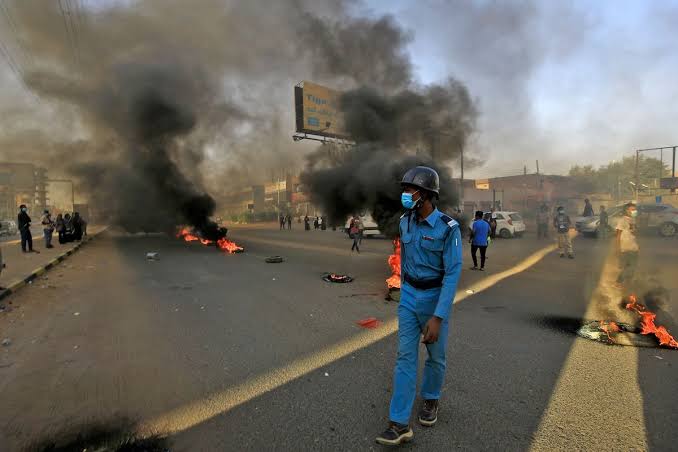
For many Sudanese, the departure of diplomats, aid workers and other foreigners and the closure of embassies are terrifying signs that international powers expect the mayhem to only worsen.



